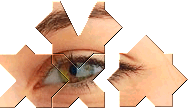NEW ORLEANS — Dialectical behavior therapy can be an effective modality for treating individuals with eating disorders, Elizabeth Kelly said at the annual meeting of the Association for Advancement of Behavior Therapy.
"Dialectical behavior therapy picks up where cognitive behavioral therapy leaves off by balancing change with validation and acceptance strategies," Ms. Kelly said.
She reported on her work with 30 patients with anorexia and/or bulimia as well as other unspecified eating disorders. The patients participated in a dialectical behavior therapy skills group and ranged in age from adolescence to young adult. Some were outpatients, while others were in the partial hospitalization program at New York Presbyterian Hospital, White Plains.
Patients reported that the skills group helped them understand nutrition better and taught them new ways to manage their eating problems. There was a noticeable reduction, from pretreatment to posttreatment, in dysfunctional behaviors such as bingeing, purging, and excessive exercise, said Ms. Kelly, a clinical social worker now in private practice in Tarrytown, N.Y.
Group participants received basic education about nutrition, which included debunking popular myths about dieting. They discussed cultural reinforcers of imbalanced eating behaviors and of negative body image. They learned mindful eating techniques that helped them increase awareness of the difference between emotions and hunger, achieve satisfaction and enjoyment from food, and promote an accepting and nonjudgmental attitude about their body image.
Patients were expressly prohibited from discussing weight or numerical measures of weight loss in the group setting and were encouraged to eat while the group was in session. These in vivo eating experiences enabled the therapist to teach mindfulness skills, while homework assignments facilitated application of these skills outside the group.
For homework, participants filled out daily eating disorders diary cards reporting on their food consumption patterns—including time, location, quantity, and type of food consumed—and emotions associated with eating. They were asked to record bingeing, laxative, purging, or excessive exercise activity; and to note the particular skill used to address food-related behaviors.
"Dialectical behavior therapy treatment goals focused on the dialectical dilemma of rigid, overcontrolled eating versus absence of an eating structure or plan," Ms. Kelly said. She added that the dialectical approach emphasizes the need for individuals with eating disorders to learn acceptance of their bodies while still working toward change and to adopt structured, responsible eating habits without becoming obsessed by food.
Ideally, the skills group should be part of a larger, total dialectical behavior therapy program consisting of an individual therapist; a group therapist; and a dialectical behavior therapy-friendly nutritionist, psychopharmacologist, and internist, Ms. Kelly suggested. "I stress 'dialectical behavior therapy-friendly' because occasionally, nutritionists and internists are not sufficiently in tune with the psychological needs of individuals who have eating disorders and their advice actually reinforces the dysfunctional behavior," she said.
Since this population is classically very difficult to work with, a team provides a supportive atmosphere that can make the therapist more effective. She encouraged further research to provide empirical support for this treatment approach and to delineate specific adaptations for the different classifications of eating disorders. She also advocated the creation of total team programs that would include family treatment and relapse prevention components.

